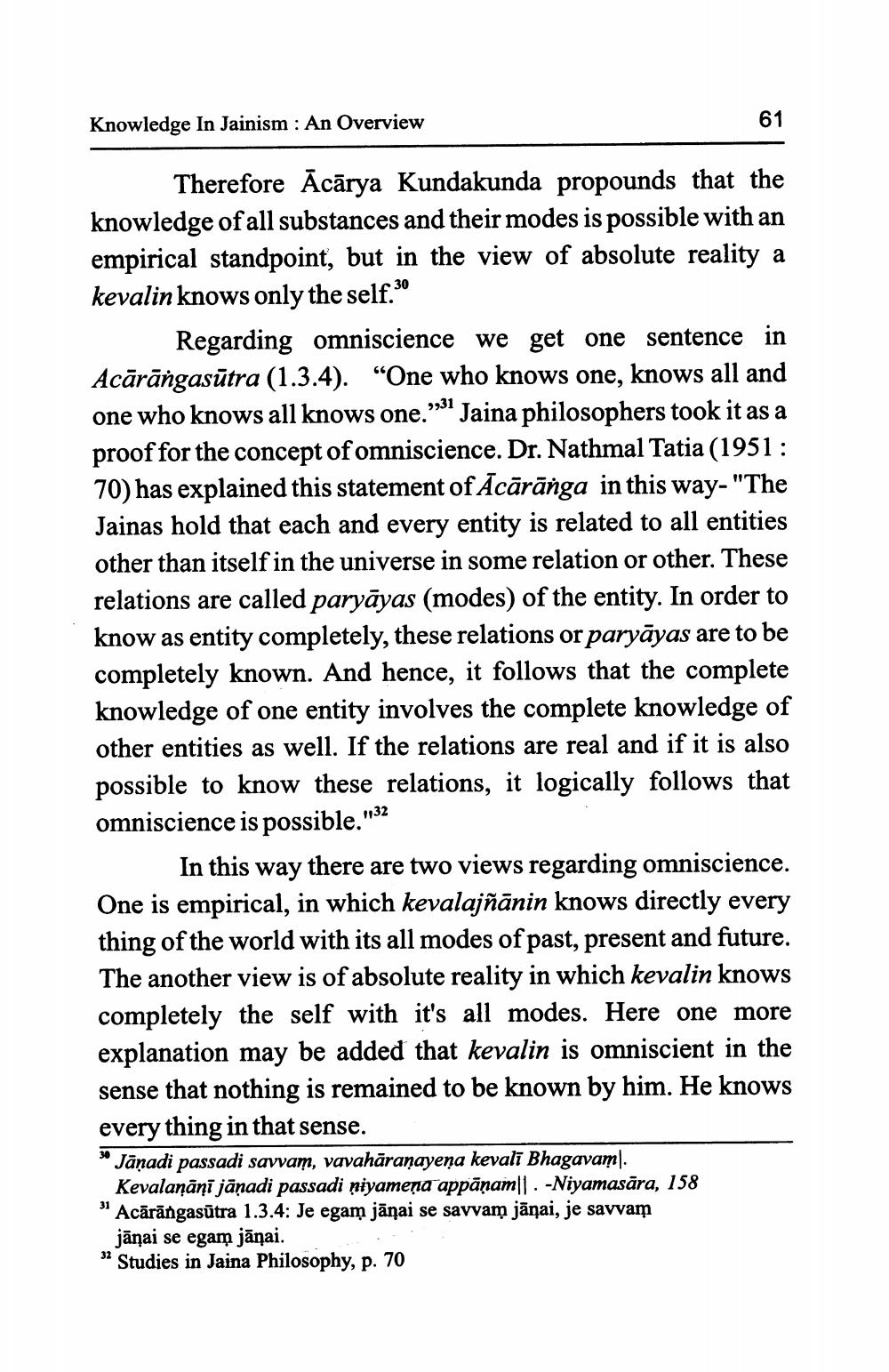________________
Knowledge In Jainism: An Overview
Therefore Acarya Kundakunda propounds that the knowledge of all substances and their modes is possible with an empirical standpoint, but in the view of absolute reality a kevalin knows only the self.30
9,31
Regarding omniscience we get one sentence in Acārāngasūtra (1.3.4). "One who knows one, knows all and one who knows all knows one." Jaina philosophers took it as a proof for the concept of omniscience. Dr. Nathmal Tatia (1951: 70) has explained this statement of Acārānga in this way- "The Jainas hold that each and every entity is related to all entities other than itself in the universe in some relation or other. These relations are called paryayas (modes) of the entity. In order to know as entity completely, these relations or paryayas are to be completely known. And hence, it follows that the complete knowledge of one entity involves the complete knowledge of other entities as well. If the relations are real and if it is also possible to know these relations, it logically follows that omniscience is possible."32
In this way there are two views regarding omniscience. One is empirical, in which kevalajñānin knows directly every thing of the world with its all modes of past, present and future. The another view is of absolute reality in which kevalin knows completely the self with it's all modes. Here one more explanation may be added that kevalin is omniscient in the sense that nothing is remained to be known by him. He knows every thing in that sense.
30
61
31
32
Janadi passadi savvam, vavaharaṇayena kevali Bhagavam.
Kevalaṇānī jāṇadi passadi niyamena appāṇam||. -Niyamasara, 158
Acarangasūtra 1.3.4: Je egam jānai se savvam jānai, je savvam
jāņai se egam jāņai.
Studies in Jaina Philosophy, p. 70




